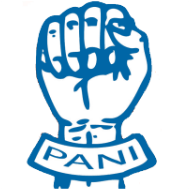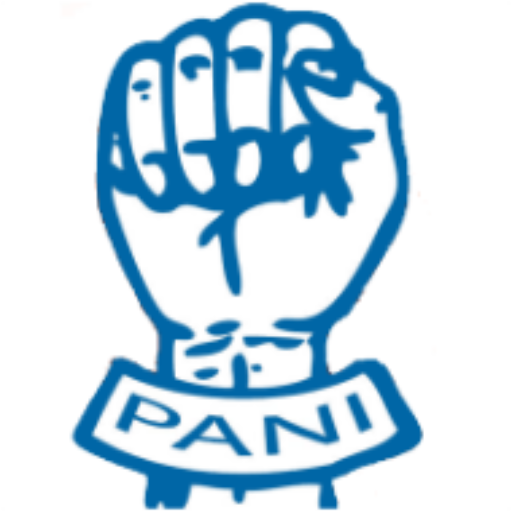Thematic Areas
Implementation is the core strength of ‘PANI’. It works to address the root causes of poverty and inequality through community-based interventions. ‘PANI’ implements the programs with high level of commitment, inclusiveness; values and respects people’s rights and tries its best to deliver high quality results in a manner accountable to stakeholders. ‘PANI’ conceptualizes, develops and implements the programs in the following thematic areas.
-
Integrated Child DevelopmentIntegrated Child Development
-
Health, Nutrition, and WASHHealth, Nutrition, and WASH
-
Gender and Governance (Women and Adolescent Girls' Empowerment)Gender and Governance (Women and Adolescent Girls' Empowerment)
-
Sustainable LivelihoodSustainable Livelihood
-
Climate Change and NRMClimate Change and NRM
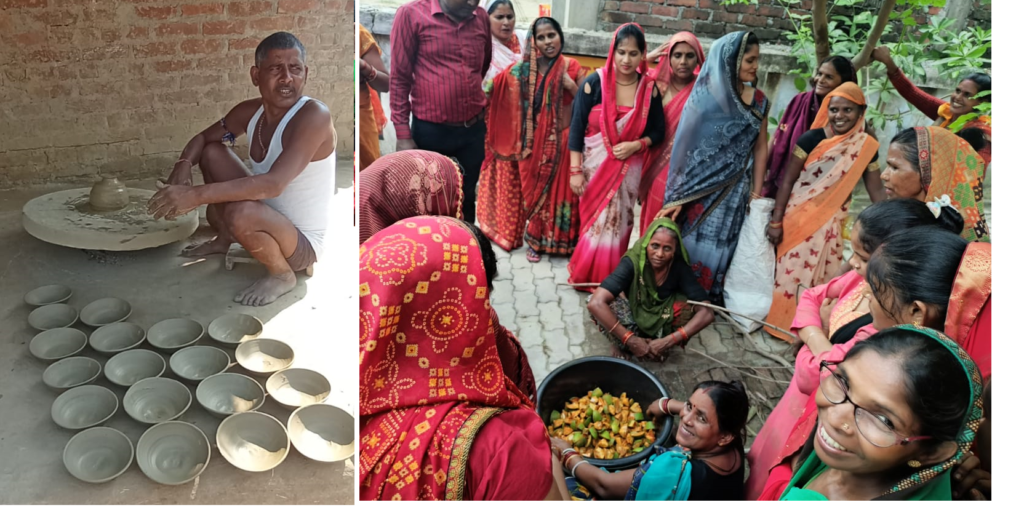
Integrated Child Development
Objective: To ensure that children – both girls and boys – grow up and live in a safe and enabling environment where all are respected, protected, and empowered against various forms of abuse and exploitation.
PANI places children’s rights at the center stage and makes efforts to enable them to break the cycle of denial and patterns of discrimination. Through various initiatives, we make efforts to:
- improve their health
- increase their nutrition
- reduce mortality and morbidity
- provide better learning opportunities, and
- remove the barriers to education
Approach:
- Children and adolescents in the age group 12-18 years are collectivized at four tiers: Bal Jagriti Manch at the village level, Bal Vikas Samiti at the Panchayat level, Bal Jagriti Sangh at the cluster level and Bal Jagriti Mahasangh at the block level.
- Children are sensitized on rights of a child and issues around them such as those concerning cleanliness in village, sanitation, hygiene, functioning of schools, functioning of gram sabha etc.
- They identify the relevant issues, and steps to be taken to address them, and then collectively decide the agenda and means for advocacy and spreading awareness.
- Children are provided trainings on various forms of expression such as writing stories, composing news items, writing poetry, expression through cartoon, drawings, conducting plays, etc.
- Currently, there are 53 ‘Child Resource Centers’ functioning at village levels. These are physically located in public spaces that are identified collaboratively with the community and are owned and managed by children of Bal Jagriti Manch. Children organize regular meetings and discussions on issues around them, and they practice creative skills and personality development.
We have so far impacted lives of 89,500 children, specifically 16,500 adolescent girls…
Health, Nutrition, and WASH
Objective: To improve the primary health of women, children, and adolescent girls through awareness, counselling, and collective community actions.
Approach: PANI works with individuals and communities to bring a behavioral change towards the need for primary healthcare of women, children, and adolescent girls. PANI has been instrumental in creating awareness and working with nearly 180,000 families on health, nutrition, and water & sanitation related issues. This has been achieved by:
- Identifying and nurturing community change makers and establishing informal community monitoring system.
- Promoting/triggering/catalyzing community action to create awareness about relevant government entitlement schemes pertaining to improvement of health and nutrition services, and to apply for the same.
Impact:
- Improved primary healthcare of 11,80,688 women and children in 497 Gram Panchayats
- Intervention with 79,686 adolescent girls of 15-19 years age group to ensure menstrual hygiene, TT immunization, anemia screening & treatment (with de-worming & intake of IFA tablet), basic counseling on health & nutritional care and social factors of malnutrition.
- Water, Sanitation and Hygiene (WASH) is now agenda of Nari Sanghs (women CBOs) in 497 GPs where primary healthcare program is being implemented.
We have so far worked with 110,000 households on health, nutrition and WASH programs.
Gender and Governance (Women and Adolescent Girls’ Empowerment)
Objective: PANI works towards women’s and adolescent girls’ social and economic empowerment by enhancing livelihood opportunities through skill development, training & capacity development and generating awareness around gender equality, citizens’ rights, initiatives against gender-based violence, and instilling leadership qualities. They are encouraged to participate in local governance and development activities and equipped for the same through capacity building and training.
Approach: PANI works through following ways towards women empowerment:
- Strengthening already existing women collectives/ CBOs and forming new ones where required
- Establishing women Livelihood Resource Centers for livelihood development
- Training of women on farm and non-farm Micro-Enterprise Development-MED,
- Building women’s capacities on village visioning, participating in the formulation of Gram Panchayat Development Plan (GPDP), and leadership
- Facilitating women CBOs to engage with local governance system and government machinery for local issues and development plans.
Achievements:
- 1,21,878 women collectivized in women CBOs named Nari Sanghs in 786 Gram Panchayats of 40 development blocks in 10 districts under the “Empowering Rural Women (ERW)” initiative.
- Regularized open Gram Sabha meeting in 579 GPs
- Established 7,000 women’s identity as farmers.
- 84 adolescent girls’ resource centers are enabling 4,200 adolescent girls from poorest families to come forward as empowered girls to realize their rights and fulfil their needs and aspirations.
- ‘PANI’ has helped women, girls, and community to develop an enabling and safe environment for girls and women.
Sustainable Livelihoods
Objective: To provide new opportunities and avenues for livelihoods to the rural population with an aim to provide sustainable income.
Approach: PANI plans the impactful interventions in one of the following ways to provide sustainable livelihoods:
- Supporting and training farmers to reduce cost of cultivation by optimizing the use of resources and increasing efficiency
- Training farmers on the use of innovative agricultural practices and technologies for efficient and cost-effective agriculture
- Establishing “farmer resource centers” for providing inputs, equipment, knowledge, and access to market linkages
- Imparting training and knowledge of enterprise set-up, access to credit and technological know-how for facilitating setting up of micro/ Nano enterprises, especially for women
Achievements:
- ‘PANI’ has helped 36,000 farmers reduce their cost of cultivation by 20% by optimizing the use of resources and increasing use efficiency.
- ‘PANI’ has standardized a “package of practice” that has the potential to yield income of Rs 60 from one square meter land.
- Customized livelihood intervention package has increased household income by 50% in 24 months.
- Provided pre and post migration services to 15,600 migrant laborers to facilitate their migration process and improve migration experience. ‘PANI’ works as a readily available platform to provide solution to their complex problems like legal and skill development issues.
NRM & Climate Change
Objective: PANI works collaboratively with village panchayats, farmers, and other stakeholders to help in adoption of climate adaptable agricultural practices, access to climate change schemes/ products/ services and conserving natural resources for farmers to promote environment friendly practices.
Approach:
PANI works towards creating Sustainable solutions for water efficient; economically rewarding agriculture for small farmers with following key objectives:
- To bring positive changes in community & their farming practices towards the conservation of natural resources especially water & Soil.
- To enhance the cultivated area through water efficient agriculture practices.
- To enhance the production & productivity of major crops like- Paddy, wheat, pulses, sugarcane & vegetables in the villages
- To improve the livelihood condition of farmer households through introducing improved agriculture practices.
- To ensure the access of marginal farmers over govt. livelihood programs/ schemes through their mobilization and knowledge building
Major Projects
Major projects implemented/being implemented by the organization
major interventions- By Thematic Area
Our Impact
Integrated Child Development
Health, Nutrition, and WASH
Sustainable Livelihoods
NRM and Climate Change
Women and Adolescent Girls’ Empowerment
Integrated Community Development
Humanitarian Response (Flood & COVID relief)
Know More About
2.5 million Households Impacted
PANI continues to work with the vulnerable and marginalized populations, building their capacity, and enabling and empowering them. Our achievements on the ground motivate us to do more and do better.
Our Partners
Know More About
Current Funding Partners
Past Funding Partners
Peoples’ Action for National Integration’s past funding partners, Clients, and Stake holders are.
Success Stories
From Traditional Agriculture to Prosperity: The Inspiring Journey of Rajkumari
In 2016, Rajkumari made a bold decision to abandon traditional agriculture and venture into multilayer farming for vegetable production on her one-acre land. She began with commercially viable crops, such as onions and bottle gourds, and sold the produce herself in the local retail market. Her net profit for the first year was an impressive Rs. 85,000.
As the years went by, Rajkumari’s profit margin from vegetable cultivation increased substantially, and she became more prosperous. Her confidence level grew, and in 2018, she decided to add banana cultivation to her repertoire. She leased another acre of land and earned approximately Rs. 200,000 in net profit during the year.
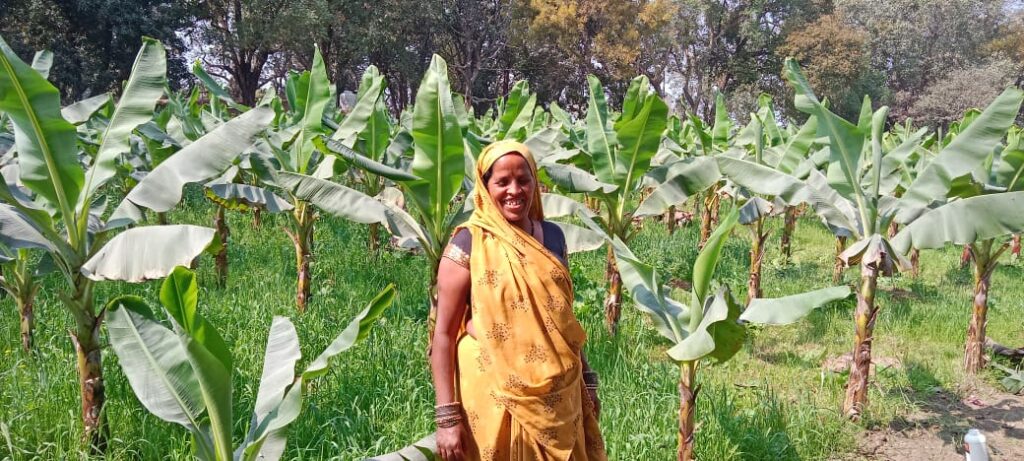
In 2021, Rajkumari attended a microenterprise development training program and diversified her agricultural and allied activities by starting her own poultry farm.
Today, Rajkumari is one of the most prosperous farmers in the area, owning a modern house with all amenities and providing a high level of education to her children. Her prosperity over the last ten years is a result of her consistent effort, hard work, persistence, and focused planning. She has become a role model for her local community of farmers, proving that with dedication, devotion, and determination towards your goals, nothing is impossible.
The Rise of Mushroom Cultivation: A Promising Income Source for Rural Women and Farmers
The popularity of mushrooms is on the rise due to their nutritional benefits such as being rich in minerals, vitamins, low in fat and sugar, and a good source of protein containing essential amino acids. Certain varieties of mushrooms are also known for their medicinal properties and their ability to inhibit the growth of cancerous tumours. Mushroom cultivation can be an effective use of leisure time and a labour-intensive enterprise that can become a lucrative business for rural youth, self-help groups, farm women, and farmers seeking additional income sources.
Mushroom cultivation is eco-friendly and can utilize agricultural waste to produce fruiting bodies with excellent nutritional and medicinal properties. In pursuit of empowering rural women financially and improving their quality of life, the PAID – ERW program team organized four training programs on mushroom cultivation. These programs not only provided necessary training but also marketing facilities to encourage non-farm activities.
The training programs were held in each block of the project area and were attended by a total of 110 women who initiated oyster mushroom cultivation on a micro-level with a buy-back arrangement for their production. The impact of the training programs was immense on the mindset of the participants and other women, and it showed the potential for mushroom cultivation to provide a promising and viable activity for those seeking additional income sources.
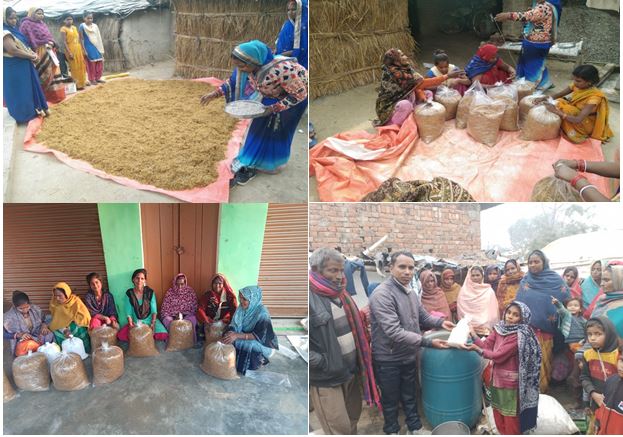
Zahrunnisa- a Role Model for Women Entrepreneurs
With only 0.25 acres of agricultural land and no consistent source of income for her family, Zahrunnisa adopted goat rearing as a means of enhancing her income. She became one of the most active members of the Nari sangh, a local women’s group, and shared her success story with them.
Zahrunnisa contacted the Women Farmer Resource Centre (WFRC) based in Gaddopur to seek guidance and knowledge input. With the help of the project team, she started goat rearing with only two goats and a small investment of 6000 rupees. She attended the micro-enterprise development (MED) training program on goat rearing organized by the project team, which had a remarkable effect on her business.
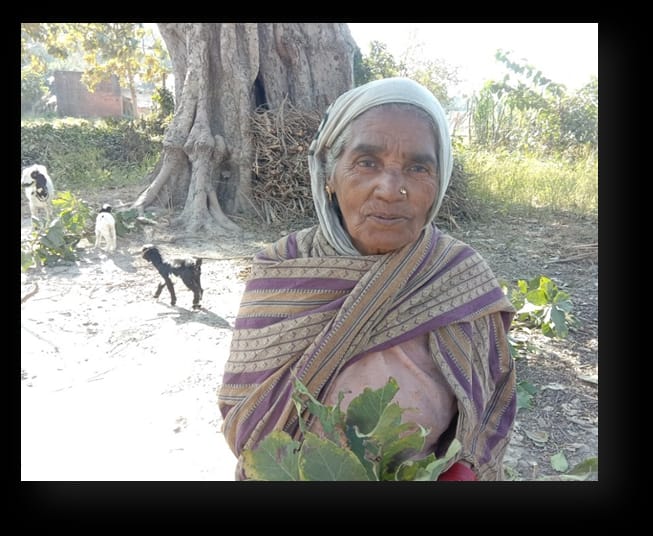
Network Organization - SATHI
PANI believes that CSOs working at grassroot in different geographies are the valuable resource for the nation to contribute to the development process. So, to nurture the CSOs, their alliance building, institutional capacity building and association with various stakeholders at various levels; the need of organization like SATHI has been felt. In September 1992, Supporting Association for Thematic and Holistic Initiative-Uttar Pradesh (SATHI-UP) came into existence as an informal association of 469 organizations representing 40 districts of Uttar Pradesh. SATHI works on the core ideology of Friendship – Dialogue – Co-operation. SATHI helps its member organizations to build their institutional capacities in three key areas – (i) Governance and management (ii) Issue-specific and (iii) community facilitation and engagement. Since 2004, SATHI has been working as a formal entity and has its coordination office in Faizabad, Ayodhya under the leadership of PANI.
Supporting Association for Thematic and Holistic Initiatives (SATHI) has been working to catalyse the development process in underdeveloped regions of Uttar Pradesh. It has been established to achieve the vision of Gram Swaraj; in which every villager/citizen realizes its human potential and contributes to development of village as well as nation through participatory, transparent and accountable local self-governance system.
It was conceptualized and founded by a renowned Gandhian Thinker and Social Activist Late Shree Paras Bhai with his 24 colleagues in 1992; and registered as formal organization in July 2004 under Societies Registration Act 21, 1860.
SATHI works to improve the quality of life and well-being of marginalized communities of society through capacitating small and grassroots’ level potential Civil Society Organizations (CSOs), building perspective of development professionals working at grassroots level and leadership building among deprived section of society; so that they work for the betterment of marginalized communities.
Since inception, it is engaged in bringing positive changes among marginalized communities through thematic and institutional strengthening support to grassroots level CSOs and community based project on women empowerment, education, livelihoods and other initiatives which address inequality. Presently it is implementing projects to support women empowerment, digital education, civil society strengthening and strengthening the values of Justices, equality, liberty and Fraternity by community actions. Presently, more than 400 grassroots level CSOs from 40 SATHI District Forums-SDFs are associated with us as member organization. SATHI is implementing its interventions currently in 40 districts of Eastern UP and Bundelkhand regions of Uttar Pradesh.
